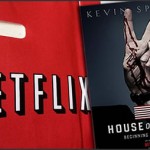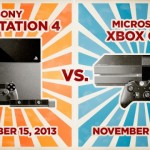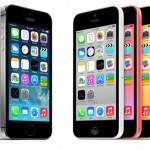 Ali Lamei, a new friend of mine, recently blogged about the article, ‘Netflix wins …an Emmy?’. His comments noted on the current success Netflix premier show, The House of Cards, has had in televisions’ drama genre. Given its success, Netflix is utilizing $300,000 to create five new, Netflix exclusive, television series per year. This reminds me of our in class active discussion on whether Netflix should partner with YouTube, ABC & NBC, purchase more current shows, or allocate more capital in order to create new shows in order to entice their potential investors. It seems as if Netflix shares the common idea with some of our classmates who opted for the streaming powerhouse to create new and exclusive television series. I found it interesting that Netflix would chose to invest a large sum of money, time and resources into producing new shows that may not meet their consumers standards. However, Ali’s blog claims, given the overwhelming success of The House of Cards, Netflix will, inevitably, have the ability to attract top-tier actors and directors to ensure that their investments will incur extremely high success rates. His blog puts into perspective why Netflix would choose to create new television series over partnering with other television networks or purchasing individual shows.
Ali Lamei, a new friend of mine, recently blogged about the article, ‘Netflix wins …an Emmy?’. His comments noted on the current success Netflix premier show, The House of Cards, has had in televisions’ drama genre. Given its success, Netflix is utilizing $300,000 to create five new, Netflix exclusive, television series per year. This reminds me of our in class active discussion on whether Netflix should partner with YouTube, ABC & NBC, purchase more current shows, or allocate more capital in order to create new shows in order to entice their potential investors. It seems as if Netflix shares the common idea with some of our classmates who opted for the streaming powerhouse to create new and exclusive television series. I found it interesting that Netflix would chose to invest a large sum of money, time and resources into producing new shows that may not meet their consumers standards. However, Ali’s blog claims, given the overwhelming success of The House of Cards, Netflix will, inevitably, have the ability to attract top-tier actors and directors to ensure that their investments will incur extremely high success rates. His blog puts into perspective why Netflix would choose to create new television series over partnering with other television networks or purchasing individual shows.
Monthly Archives: November 2013
Console smackdown! PlayStation 4 vs. Xbox One
 November 15th marks the debut of the much-anticipated Plays Station 4. No longer than a week after its release comes the arrival of the XBOX One. It has been seven years since the release of a new console from either of these gaming giants. Now that the release dates are fast approaching, I cannot help but wonder which of the two systems will receive more positive publicity and achieve a greater success rate. Both Play Station and Xbox have their loyal customers; however, it has been almost a decade since the last version of either system has been released. Personally, I believe that the consumers decisions will correlate to the systems they currently own, eagerly waiting for an upgrade and a myriad of new exclusive games for each respective console. From a strategic standpoint, Play Station has been intelligent in releasing the PS4 a week before the Xbox One comes onto the market. Consumers,typically speaking, will not wait an extra week to by a more expensive substitute, in this case, the Xbox One unless they are truly dedicated to the product and the brand. I forecast that the revenue Play Station will receive in the one week it has over the release of the new Xbox will have a noticeable impact the amount of sales Microsoft’s Xbox One makes in its first week of sales.
November 15th marks the debut of the much-anticipated Plays Station 4. No longer than a week after its release comes the arrival of the XBOX One. It has been seven years since the release of a new console from either of these gaming giants. Now that the release dates are fast approaching, I cannot help but wonder which of the two systems will receive more positive publicity and achieve a greater success rate. Both Play Station and Xbox have their loyal customers; however, it has been almost a decade since the last version of either system has been released. Personally, I believe that the consumers decisions will correlate to the systems they currently own, eagerly waiting for an upgrade and a myriad of new exclusive games for each respective console. From a strategic standpoint, Play Station has been intelligent in releasing the PS4 a week before the Xbox One comes onto the market. Consumers,typically speaking, will not wait an extra week to by a more expensive substitute, in this case, the Xbox One unless they are truly dedicated to the product and the brand. I forecast that the revenue Play Station will receive in the one week it has over the release of the new Xbox will have a noticeable impact the amount of sales Microsoft’s Xbox One makes in its first week of sales.
How Netflix Knows Who Wants to Watch What
 Today’s post focuses on Nick Taylor-Vaisey’s blog on MacLean’s Business Blog website. This post comments on how Netflix has been able to stay one step ahead of any of its limited competitors and provide consumers with what they want, without having to physically communicate with them. According to Vaisey’s blog post, Netflix has, “snoop[ed] around the dark corners of the Internet, looking at file-sharing websites and purchasing the shows that are most popular among the legion of online pirates”. The inquiry Netflix has undertaken to uncover what is popular with their consumers in each individual part of the world is something I find intriguing. As opposed to polling and surveying their consumers, they have gone directly to the source of what people around the globe are consistently watching online and seem to be interested in. This method of investigation allows the company to hold a competitive advantage over any other possible media streaming companies. Netflix is able to keep up with the latest trends and fads in the motion picture world. From a strategic standpoint, this mode of competitive research is extremely intelligent and is one of the many examples of why Netflix has become the success story it is today.
Today’s post focuses on Nick Taylor-Vaisey’s blog on MacLean’s Business Blog website. This post comments on how Netflix has been able to stay one step ahead of any of its limited competitors and provide consumers with what they want, without having to physically communicate with them. According to Vaisey’s blog post, Netflix has, “snoop[ed] around the dark corners of the Internet, looking at file-sharing websites and purchasing the shows that are most popular among the legion of online pirates”. The inquiry Netflix has undertaken to uncover what is popular with their consumers in each individual part of the world is something I find intriguing. As opposed to polling and surveying their consumers, they have gone directly to the source of what people around the globe are consistently watching online and seem to be interested in. This method of investigation allows the company to hold a competitive advantage over any other possible media streaming companies. Netflix is able to keep up with the latest trends and fads in the motion picture world. From a strategic standpoint, this mode of competitive research is extremely intelligent and is one of the many examples of why Netflix has become the success story it is today.
Picture Source: http://www.westayup.com/2013/09/02/netflix-original-series/netflix-logo/
Nicholas Everett- Apple’s iPhone 5c/S Sales Crush Any and All Negative Speculation
 Recently, a high school friend of mine, and now Commerce 101 peer at UBC’s Sauder School of Business, Nicholas Everett, blogged about Apple’s iPhone 5c/s’s tremendous sales result and profit growth even after undertaking its negative speculation. His insightful posting concluded with the question:” how much longer Apple’s iPhone will keep its growing sales trend, as it can’t last forever… right?” This question brings to mind the command that Microsoft had held over the technological market segment not much over than a decade ago. Reviews from that period in time likely posed similar questions to the one Nick had concluded post with. Well, new companies with groundbreaking technologies came in and dominated individual sectors that Microsoft once had a firm grasp on. It is my belief, that as long as Apple continues to focus on products that it excels at producing and revising, and refrains from drastically broaden its scope on new kinds of products, they will be a tough company to compete against. However; my concern is, given that Apple’s iPhone virtually has everything a consumer could want in a data device, what more can they offer by keeping their basic model without deter their customers by the complexities new technology has in store?
Recently, a high school friend of mine, and now Commerce 101 peer at UBC’s Sauder School of Business, Nicholas Everett, blogged about Apple’s iPhone 5c/s’s tremendous sales result and profit growth even after undertaking its negative speculation. His insightful posting concluded with the question:” how much longer Apple’s iPhone will keep its growing sales trend, as it can’t last forever… right?” This question brings to mind the command that Microsoft had held over the technological market segment not much over than a decade ago. Reviews from that period in time likely posed similar questions to the one Nick had concluded post with. Well, new companies with groundbreaking technologies came in and dominated individual sectors that Microsoft once had a firm grasp on. It is my belief, that as long as Apple continues to focus on products that it excels at producing and revising, and refrains from drastically broaden its scope on new kinds of products, they will be a tough company to compete against. However; my concern is, given that Apple’s iPhone virtually has everything a consumer could want in a data device, what more can they offer by keeping their basic model without deter their customers by the complexities new technology has in store?
Google Patenting an Electronic Throat Tattoo
 Who would’ve imagined five years ago that the technology would be where it is today. The development in the varieties of communication methods and social media has taken a front seat in this extraordinary evolution. What amazes me even more is that Google has just patented an electronic throat tattoo. This tattoo will be located on the consumer’s neck in order to “communicate with smartphones, gaming devices, tablets and wearable tech like Google Glass via a Bluetooth-style connection and would include a microphone and power source”. Is this seriously what technology has in store for us looking forward into the next five years? The rapid nature of technology reminds me of a TedTalk we were required to watch in Commerce101 before our IT and Information Systems class. This video described the relationship that humans and technology simultaneously develop along. However, with the enormity of the scale at which Google is developing new modes of user interface, one cannot help but ask whether technology is developing faster than we can keep up with. On a separate note, how might the average consumer perceive a permanent and visible barcode on their throat just to simplify the way that they communicate with their data devices? In my opinion, this idea brought on by Google can be considered an invasion of privacy and an inappropriate method of branding their consumers.
Who would’ve imagined five years ago that the technology would be where it is today. The development in the varieties of communication methods and social media has taken a front seat in this extraordinary evolution. What amazes me even more is that Google has just patented an electronic throat tattoo. This tattoo will be located on the consumer’s neck in order to “communicate with smartphones, gaming devices, tablets and wearable tech like Google Glass via a Bluetooth-style connection and would include a microphone and power source”. Is this seriously what technology has in store for us looking forward into the next five years? The rapid nature of technology reminds me of a TedTalk we were required to watch in Commerce101 before our IT and Information Systems class. This video described the relationship that humans and technology simultaneously develop along. However, with the enormity of the scale at which Google is developing new modes of user interface, one cannot help but ask whether technology is developing faster than we can keep up with. On a separate note, how might the average consumer perceive a permanent and visible barcode on their throat just to simplify the way that they communicate with their data devices? In my opinion, this idea brought on by Google can be considered an invasion of privacy and an inappropriate method of branding their consumers.
Twitter Stock Already Down- Graded
A couple of weeks ago before the debut of the Twitter stock, we had discussed in Commerce 101 why we, individually, would buy or would not buy any of Twitter’s shares.  Some arguments for the purchase of these shares had a tone of hope brought about by the common parallel drawn between the success of Facebook and the anticipated success of Twitter given that they are both modes of social media. These students wanted to buy into the hype of Twitter in order not to miss out on this opportunity like they did for Facebook. Other students argue that they would not buy into Twitter because there are no evident sources of profit to be made. The article, Twitter Stock Already Down-Graded, concurs with those students claiming that the valuation of this company at $24.4 billion is simply too high! The company has no legitimate way of turning a profit; an intelligent investor can only begin to imagine what the company’s first set of quarterlies will look like. Is Twitter a smart long-term investment despite the absence of its current revenue stream? I don’t think people should start doubting their investment just as yet. Think about it, what will happen when Twitter finds an approach to start making money and paying dividends? I believe the stock price can sky rocket even higher than it currently is, making this long-term investment less obscure than some critics make it out to be.
Some arguments for the purchase of these shares had a tone of hope brought about by the common parallel drawn between the success of Facebook and the anticipated success of Twitter given that they are both modes of social media. These students wanted to buy into the hype of Twitter in order not to miss out on this opportunity like they did for Facebook. Other students argue that they would not buy into Twitter because there are no evident sources of profit to be made. The article, Twitter Stock Already Down-Graded, concurs with those students claiming that the valuation of this company at $24.4 billion is simply too high! The company has no legitimate way of turning a profit; an intelligent investor can only begin to imagine what the company’s first set of quarterlies will look like. Is Twitter a smart long-term investment despite the absence of its current revenue stream? I don’t think people should start doubting their investment just as yet. Think about it, what will happen when Twitter finds an approach to start making money and paying dividends? I believe the stock price can sky rocket even higher than it currently is, making this long-term investment less obscure than some critics make it out to be.
BBM Available for Android on September 21 and iPhone on September 22
 Blackberry has become decreasingly popular with the entrance of new smartphones that have begun to replace their unique ‘business smartphone’ identity. As a blackberry user, I have noticed the increasing amount of BBM status’s following a similar template of, “New iPhone, no more BBM” or “Android- new phone number, no more BBM”. As a loyal Blackberry user, this ongoing conversion from Black Berry’s to the new era of smart phones has been challenging to deal with. However, Blackberry has dropped its exclusiveness of BBM being available only for Blackberry users and is recreating this recently outdated version of social media a trend for iPhone and Android users to help restore and utilize all of its benefits. From a business standpoint, this idea of allowing the failing Blackberry Smartphone to make their phones greatest asset, BBM, available to smartphone giants such as Apple and Google is a great idea. Blackberry users, past and present, will agree that BBM was the most unique aspect about being a Blackberry owner. Making this feature available on most smart phones might lead to an increase in Blackberry sales. BBM was a fad; people left Blackberry’s because BBM was outdated. The question is,upon the September 21st release of BBM, will the availability of BBM in other smartphones help re-emhamceBlackberry rejuvenate its company and its business image?
Blackberry has become decreasingly popular with the entrance of new smartphones that have begun to replace their unique ‘business smartphone’ identity. As a blackberry user, I have noticed the increasing amount of BBM status’s following a similar template of, “New iPhone, no more BBM” or “Android- new phone number, no more BBM”. As a loyal Blackberry user, this ongoing conversion from Black Berry’s to the new era of smart phones has been challenging to deal with. However, Blackberry has dropped its exclusiveness of BBM being available only for Blackberry users and is recreating this recently outdated version of social media a trend for iPhone and Android users to help restore and utilize all of its benefits. From a business standpoint, this idea of allowing the failing Blackberry Smartphone to make their phones greatest asset, BBM, available to smartphone giants such as Apple and Google is a great idea. Blackberry users, past and present, will agree that BBM was the most unique aspect about being a Blackberry owner. Making this feature available on most smart phones might lead to an increase in Blackberry sales. BBM was a fad; people left Blackberry’s because BBM was outdated. The question is,upon the September 21st release of BBM, will the availability of BBM in other smartphones help re-emhamceBlackberry rejuvenate its company and its business image?
